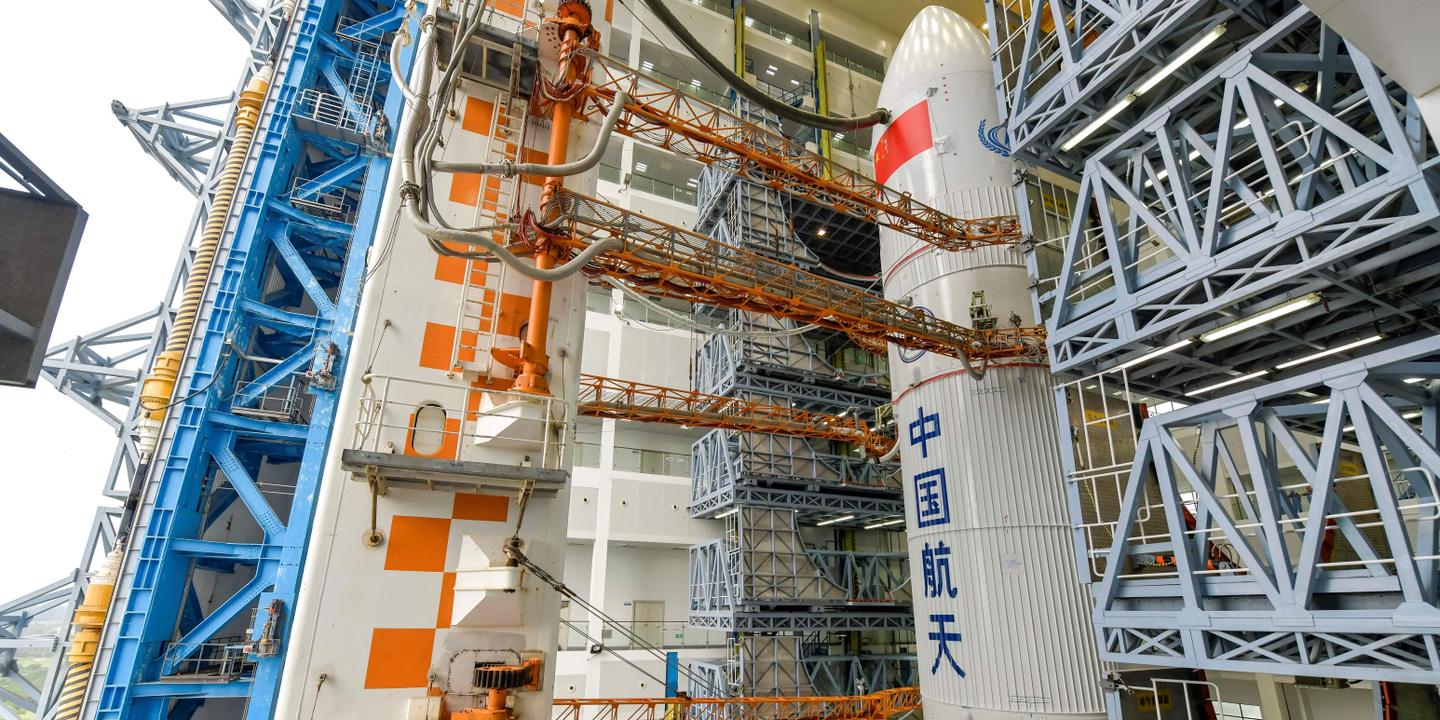China Launches Initiative To Build Space-Based Supercomputer

Table of Contents
The Ambitious Goals of China's Space-Based Supercomputer Project
The overarching aim of China's space-based supercomputer project is to significantly enhance the nation's capabilities in space exploration and data analysis. This ambitious undertaking seeks to create a powerful computing platform capable of processing vast amounts of data generated by satellites and other space-based assets far more efficiently than current ground-based systems. The project's goals encompass several key areas:
-
Accelerated Scientific Discovery: By drastically reducing data processing time, the space-based supercomputer will enable faster analysis of astronomical data, leading to accelerated scientific breakthroughs in fields like astrophysics and cosmology. This speed increase is crucial for timely responses to astronomical events and deeper understanding of the universe.
-
Improved Satellite Communication and Navigation: The enhanced computational power will improve the precision and efficiency of satellite communication and navigation systems, leading to more reliable GPS signals, improved satellite imagery, and more efficient data transmission between satellites and ground stations. This could greatly enhance global communication networks and location-based services.
-
Enhanced Earth Observation and Environmental Monitoring: The supercomputer will enable more sophisticated analysis of Earth observation data, leading to improved weather forecasting, more accurate climate change modeling, and better resource management. This increased capability in environmental monitoring will play a crucial role in addressing global climate challenges.
-
Potential Applications in Defense and National Security: While specific details remain classified, the enhanced computational power and data processing capabilities of a space-based supercomputer could have significant implications for national security and defense applications, such as improved surveillance and early warning systems.
Technological Challenges and Innovations
Building a space-based supercomputer presents formidable technological hurdles. The harsh environment of space demands innovative solutions to overcome several significant challenges:
-
Radiation Shielding: Space is bombarded with high-energy radiation, which can damage sensitive electronic components. Developing robust radiation-hardened components is crucial for ensuring the long-term reliability of the supercomputer. This necessitates the creation of new materials and design strategies capable of withstanding extreme radiation levels.
-
Power Supply in Space: Providing a reliable and sustained power supply in the vacuum of space requires advanced power generation and energy storage technologies. Solar power is a key solution, but efficient energy storage systems are crucial to ensure continuous operation, particularly during periods of shadow.
-
Heat Dissipation: The high computational power of a supercomputer generates significant heat. Effective thermal management systems are vital to prevent overheating and component failure in the absence of efficient convective cooling in space. This necessitates innovative thermal designs and materials that can effectively dissipate heat in the vacuum of space.
-
Data Transmission Limitations: Transmitting vast amounts of data from space to Earth presents a significant bottleneck. High-bandwidth laser communication technologies are being developed to overcome this limitation and enable rapid data transfer. This area of research is critical for the project’s success.
Potential Role of Quantum Computing in Space
The integration of quantum computing capabilities into the space-based supercomputer represents a potentially revolutionary advancement. Quantum computers, while still in their early stages of development, possess the potential to vastly outperform classical computers in specific tasks:
-
Enhanced Cryptography and Secure Communication: Quantum computing offers the potential to develop unbreakable encryption methods, safeguarding sensitive data transmitted between satellites and ground stations.
-
Improved Capabilities in Materials Science and Drug Discovery: The immense computational power of quantum computers could accelerate the discovery of new materials and drugs with superior properties. This could have profound implications for various industries.
-
Advancements in Artificial Intelligence and Machine Learning: Quantum computing could significantly accelerate the development and deployment of advanced AI and machine learning algorithms, enhancing the capabilities of the space-based supercomputer itself.
Global Implications and Competition in Space Technology
China's space-based supercomputer initiative has significant global implications, intensifying the competition in space technology among leading spacefaring nations. The project's success will undoubtedly influence other countries' space programs and accelerate the development of similar technologies.
-
Increased Competition in the Development of Space-Based Technologies: The initiative will spur a new wave of investment and innovation in space-based computing and related technologies around the world, leading to an acceleration of the space race.
-
Potential for International Collaborations on Space-Related Research: While competition is fierce, there's also the potential for international collaborations to address the immense technological challenges involved in developing and deploying space-based supercomputers.
-
New Opportunities for Technological Advancements and Economic Growth: The development of this technology will create new opportunities for technological advancements and economic growth, both within China and internationally.
-
Ethical Considerations Regarding the Military Applications of the Technology: The potential military applications of this technology raise important ethical considerations and necessitate transparent discussion and global collaboration on responsible development and deployment strategies.
Conclusion
China's initiative to build a space-based supercomputer represents a significant leap forward in space technology and computation. The potential benefits across various scientific and technological fields are immense, driving innovation and shaping the future of space exploration. From accelerating scientific discovery to improving global communication and environmental monitoring, the implications are far-reaching and transformative.
Call to Action: Stay tuned for further developments in this groundbreaking initiative, as China's space-based supercomputer project promises to redefine the boundaries of space computing and propel us towards a new era of space exploration. Follow our updates for the latest news on this revolutionary space-based supercomputer project and its impact on the global stage.

Featured Posts
-
 M Night Shyamalans The Village An Agatha Christie Inspired Thriller
May 20, 2025
M Night Shyamalans The Village An Agatha Christie Inspired Thriller
May 20, 2025 -
 Canadian Tire Acquisition Of Hudsons Bay Potential Benefits And Risks
May 20, 2025
Canadian Tire Acquisition Of Hudsons Bay Potential Benefits And Risks
May 20, 2025 -
 Wwe Raw The Brutal Attack On Sami Zayn By Rollins And Breakker
May 20, 2025
Wwe Raw The Brutal Attack On Sami Zayn By Rollins And Breakker
May 20, 2025 -
 Transfert Controverse De Melvyn Jaminet Les Declarations De Kylian Jaminet
May 20, 2025
Transfert Controverse De Melvyn Jaminet Les Declarations De Kylian Jaminet
May 20, 2025 -
 I Los Antzeles Psaxnei Ton Giakoymaki
May 20, 2025
I Los Antzeles Psaxnei Ton Giakoymaki
May 20, 2025
